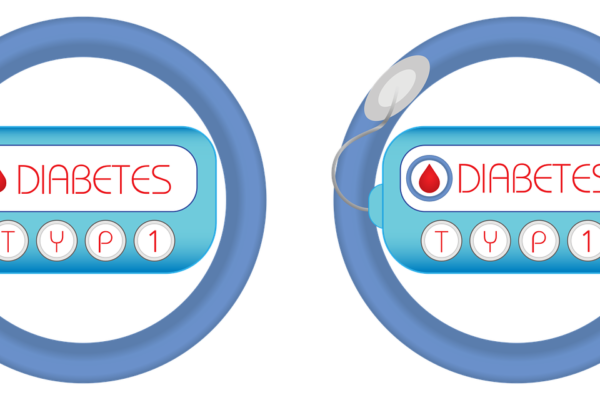Introduction to Letrozole
Letrozole, also known as Femara, is a medication used to treat polycystic ovary syndrome (PCOS). PCOS is a hormonal problem that affects women of reproductive age and is characterized by hormonal imbalance, irregular menstruation and multiple ovarian cysts. It is estimated that around 5-10% of women worldwide suffer from PCOS.
Letrozole belongs to a class of drugs called aromatase inhibitors. It works by reducing the body’s production of estrogen, the sex hormone. Letrozole effectively reduces the conversion of androgens (male hormones) to estrogen by inhibiting aromatase. Lowering estrogen helps restore hormonal balance in women with PCOS and can improve ovulation and menstrual patterns.
The use of letrozole in the treatment of PCOS has been approved and accepted in recent years. It has emerged as a promising alternative to clomiphene citrate, a first-line therapy for ovulation induction in women with polycystic ovary syndrome. Letrozole has been shown to be more effective at inducing ovulation and pregnancy compared to clomiphene citrate,making it the choice of many doctors.
In addition to its role in ovulation induction, letrozole has shown beneficial results in other aspects of PCOS management. Research shows that letrozole can help reduce insulin resistance, one of the hallmarks of PCOS, and improve metabolic conditions such as insulin resistance and insulin sensitivity. The dual benefits of letrozole in terms of fertility and metabolism in PCOS make it beneficial for women with this disease. As understanding and treatment options for PCOS continue to evolve, letrozole has emerged as a major player in the treatment of this complex hormonal disorder. Letrozole’s effectiveness in inducing ovulation, improving menstrual patterns and its ability to address metabolic abnormalities make it very useful for the treatment of polycystic ovary syndrome.
Clinical Trials and History
The clinical trials and history of Letrozole in polycystic ovarian syndrome (PCOS) have prov ided a favorable view of its efficacy and safety. These trials have led to increased acceptance of letrozole as the drug of choice for ovulation induction in PCOS patients. In 2000, the first study of the use of letrozole to induce ovulation showed an increased number of blood cells in PCOS patients.
This study sparked interest in exploring the potential of letrozole as a treatment for PCOS. Th is was followed by a historical study by Legro et al. A study published in the New England Jo urnal of Medicine in 2004 comparing letrozole and clomiphene citrate for ovulation induction in women with PCOSf ound that letrozole was more effective than clomiphene at inducing ov ulation and achieving pregnancy in PCOS patients.These findings suggest that letrozol e may be a good first-line drug for ovulation induction in PCOS patients. The Society for Reproductive Medicine (RMN) conducted the PPCOS II study comparing let rozole and clomiphene citrate for ovulation induction in PCOS patients. In PCOS patients
These results further support the use of letrozole as the drug of choice for ovulation induction in PCOS patients.In addition to international studies, there is an Indian clinical trial evaluating letrozole in PCOS patients Population. Overall, clinical trials of letrozole have consistently demonstrated its effectiveness in promoting ovulation and improving fertility in PCOS patients. These trials allow letrozole tobe the drug of choice for ovulation induction in PCOS patients, providing an alternative to cl omiphene citrate. Ongoing research and clinical trials around the world and in India continue to provide further evidence to support the use of letrozole in the treatment of PCOS.
Mechanism of Action
Letrozole, also known as Femara, is an aromatase inhibitor used to treat many conditions, including breast cancer and polycystic ovary syndrome (PCOS). Its mechanism of action includes inhibition of aromatase, the enzyme responsible for converting androgens (male hormones) to estrogens (female hormones) through the aromatization process.

Representation of Letrozole Action
The following is a detailed description of the mechanism of action of letrozole:
- Aromatase inhibition: Letrozole competitively binds to the hem of the cytochrome P450 subunit of aromatase. Letrozole inhibits the conversion of androgens to estrogens by binding to an enzyme, thus reducing the total amount of estrogen in the body.
- Reduce estrogen biosynthesis: Letrozole effectively reduces estrogen biosynthesis in all tissues by inhibiting aromatase. Reducing estrogen is especially important for diseases like breast cancer because estrogen can stimulate the growth of cancer cells. Increased estrogen levels in PCOS can cause hormone imbalances and symptoms of the disease.
- Inhibiting estrogen-dependent tissue: Letrozole helps slow or stop the growth of estrogen-dependent tissue, such as certain types of breast cancer, by reducing estrogen. For PCOS, letrozole can help control hormone imbalances that cause infertility and other symptoms.
- Selectivity and potency: Letrozole is considered a potent and selective aromatase inhibitor. It has been shown to be more potent than other aromatase inhibitors such as anastrozole, exemestane, woods and aminoglutethimide.
This option is its ability to make it effective in reducing estrogen and correcting hormone deficiency in conditions like PCOS.In general, the mechanism of action of letrozole includes inhibition of aromatase, which reduces estrogen biosynthesis and inhibition of estrogen- dependent tissues. Letrozole plays an important role in the treatment of breast cancer and polycystic ovary by targeting estrogen production, helping to control hormone deficiency and improving patient outcomes.
Advantages of Letrozole
Letrozole is used to treat polycystic ovary syndrome (PCOS) and has many advantages that make it the drug of choice for many doctors. These beneficial properties make it effective in treating hormone imbalances and symptoms associated with PCOS.
Higher Ovulation Rate: In women with PCOS, letrozole has been shown to increase ovulation compared to other drugs such as clomiphene citrate. This means that letrozole may increase the chance of conception by causing the ovaries to release mature eggs.
Increased pregnancies: Increased blood pressure with letrozole may increase the number of women with PCOS.Studies show that letrozole has a higher live birth rate than clomiphene citrate and is therefore more beneficial for women trying to conceive. Improvement in pregnancy results in the overall success of letrozole in the treatment of PCOS.
Safety: Letrozole has demonstrated good safety in the treatment of PCOS. Studies have shown that it has a similar risk of miscarriage and multiple pregnancy compared to other drugs used to induce ovulation. This means that letrozole can be used safely as it does not increase the risk of miscarriage.
Metabolic effects: PCOS is often associated with metabolic disorders such as insulin resistance and dyslipidemia. Letrozole has been shown to be effective in improving metabolic syndrome in women with polycystic ovary syndrome. Research shows that letrozole can help lower insulin levels, reduce insulin sensitivity, and improve insulin sensitivity. These metabolic benefits are important in the long-term health management of PCOS.
Clomiphene citrate alternative: Letrozole is considered an alternative to clomiphene citrate, especially if clomiphene citrate can have negative or negative side effects. Some women may not respond well to clomiphene citrate or may experience side effects such as thinning of the uterus. Letrozole is an alternative treatment for these people.
In conclusion, letrozole has many advantages in the treatment of PCOS. Its higher ovulation rate, improved fertility and better safety make it the first choice for ovulation induction. In addition, letrozole may provide metabolic benefits and may be an alternative to clomiphene citrate. These positive effects help increase the overall effectiveness of letrozole in addressing the hormone imbalances and fertility issues associated with PCOS.
Disadvantages of Letrozole
While letrozole has many advantages in the treatment of polycystic ovary syndrome (PCOS), it is important to consider the possible side effects associated with its use. These disadvantages should be considered when deciding on treatment and discussing options with doctors.
Limited Long-Term Safety Data: There are limited data on the long-term safety of letrozole for induction of ovulation in women with PCOS. Most studies have focused on the short-term effects and immediate effects of letrozole on ovulation and pregnancy. More research is needed to fully understand the risks and benefits of long-term use.
Possible birth defects: Some studies have expressed concerns that the use of letrozole may increase the incidence of birth defects during pregnancy. It’s worth noting, however, that studies have been criticized for being poorly designed, and letrozole developers dispute the claims. However, all risks should be discussed with a doctor before starting letrozole therapy, especially for women planning to become pregnant.
Off-label use: Letrozole is generally approved for the treatment of breast cancer and its use for ovulation induction in PCOS is considered off-label use. Off-label use means the use of the drug for purposes other than those specifically approved by the regulatory agency. Although frequently used clinically to treat PCOS, it is important to consider the risks and benefits of off-label use.
Side Effects: Like all drugs, letrozole also has side effects. Side effects include hot flashes, fatigue, headache, dizziness, and joint pain. These side effects are usually mild and temporary but can still affect quality of life for some people. It’s important to discuss side effects with your doctor and weigh them against the benefits of treatment.
Dedicated care and collaboration: Treatment of PCOS with letrozole often requires the care and collaboration of a fertility specialist or an endocrinologist. Regular monitoring with blood tests and ultrasounds is necessary to assess response to treatment and adjust dose if necessary. This level of care may require additional time, assistance, and doctor visits.
Competitors in the Letrozole Drug Market
Indian Players:

Foreign Players :

Market Size and Growth
The market size of letrozole in India and foreign countries has been steadily growing due to its increasing usage in various medical conditions. The global letrozole market was valued at USD 1.2 billion in 2020 and is projected to reach USD 1.8 billion by 2027, with a compound annual growth rate (CAGR) of 5.8% during the forecast period, In India; the letrozole market has also witnessed significant growth. The Indian pharmaceutical market for letrozole was valued at INR 250 crore in 2020 and is expected to reach INR 400 crore by 2025, with a CAGR of 9%
The increasing prevalence of breast cancer and PCOS, along with the growing awareness of letrozole’s efficacy, are driving the market growth.
Usage and Demand among Patients and Doctors
Letrozole is primarily used in the treatment of hormone receptor-positive breast cancer and as an ovulation induction agent in PCOS patients. The demand for letrozole among patients and doctors has been increasing due to its effectiveness and favourable side effect profile.
In breast cancer treatment, letrozole is often prescribed as an adjuvant therapy or as a first- line treatment for postmenopausal women. Its ability to inhibit aromatase enzyme activity and reduce estrogen levels has made it a preferred choice in hormone-sensitive breast cancer cases.
In PCOS, letrozole has emerged as an alternative to clomiphene citrate for inducing ovulation. Studies have shown that letrozole can achieve higher ovulation rates, lower the risk of multiple pregnancies, and potentially improve endometrial response compared to other ovulation induction agents The demand for letrozole among patients with breast cancer and PCOS has been increasing, driven by the need for effective treatment options and the growing awareness of letrozole’s benefits. Doctors are prescribing letrozole based on its proven efficacy and safety profile, making it a widely used drug in these medical condition.

Pictorial Representation of Acquired Market Share
Novartis as the largest share in the Indian market, constituting around 46% of the Letrozole Market space,with it’s Famera being sold around 3 billion annually. Followed by Cipla’s “Fempro” which has a selling rate of 1.6 billion per annum. Making Sun Pharma’s “Letroz” third highest in the sales selling around 1.2 billion annually and leaving the last Market shares to other pharmaceuticals and generics.
Growth Forecast of Letrozole
Given the patient to prescription ratio,by the Clin clac agency it has mentioned the growth of Letrozole in the Drug dispensed to patient ratio.

Graphical Representation of Total prescriptions against Total Patients
Distribution of Dispensed Dosage Forms (2022)
| Dosage Form | Strength | % of Dispensed Products |
| Tablet/capsule | 25 mg | 68.2% |
| Tablet/capsule | 50 mg | 18.7% |
| Tablet/capsule | 100 mg | 13.1% |
Letrozole has interestingly shown a jump in the dispensed product,making it 256th largest drug sold in the Global Market,This clearly indicates the growth potential that Letrozole has for the years to come for the Market.
Conclusion
In conclusion, letrozole has emerged as a promising drug in the treatment of polycystic ovary syndrome (PCOS). Market research surrounding the PCOS drug market and the manufacturers involved sheds light on the efficacy and safety of letrozole. Studies have shown that letrozole is effective in inducing ovulation in women with PCOS It has been compared to other drugs such as clomiphene citrate (CC) and has shown comparable results.The drug has been approved by the U.S. Food and Drug Administration for use in the public
Letrozole is a third-generation aromatase inhibitor, meaning it does not significantly affect cortisol, aldosterone, and thyroxine.It is commonly used to stimulate ovulation in women with PCOS. It is important to note that neither letrozole nor CC manufacturers were involved in the clinical trials, ensuring unbiased research.The drug has been produced by different manufacturers, such as Jiangsu Hengrui Medicine Co., without financial involvement in the studies T
his further supports the credibility of the research conducted.Looking towards the future, letrozole holds promise in the PCOS drug market. Its effectiveness and safety profile make it a viable option for women struggling with infertility due to PCOS. However, it is worth mentioning that the manufacturer of letrozole has not filed for FDA approval specifically for infertility treatment,Nonetheless, physicians often use medications in an “off-label” manner when it is safe and effective
In summary, letrozole has shown efficacy and safety in the treatment of PCOS. Market research indicates its potential in the PCOS drug market. With further research and potential FDA approval for infertility treatment, letrozole could become a key player in helping women with PCOS achieve successful pregnancies.
References
https://www.grandviewresearch.com/industry-analysis/letrozole-market – This link provides an industry analysis of the letrozole market, including market size, growth, and trends.
https://go.drugbank.com/drugs/DB01006 – This link provides information on the uses, interactions, and mechanism of action of letrozole.
https://www.sciencedirect.com/science/article/pii/S001502821661289X – This link provides information on a randomized controlled trial of letrozole for infertility in polycystic ovary syndrome (PCOS).https://advancedfertility.com/fertility-medications/femara-letrozole-treatment/ – This link provides information on the use of letrozole for ovulation stimulation in women with PCOS.
https://www.accessdata.fda.gov/drugsatfda_docs/label/2007/020726s014lbl.pdf – This link provides the FDA-approved label for Femara (letrozole tablets) for oral administration.
https://www.ncbi.nlm.nih.gov/pmc/articles/PMC6221580/ – This link provides information on the efficacy and safety of letrozole for patients with PCOS.
https://www.mayoclinic.org/drugs-supplements/letrozole-oral-route/side- effects/drg-20067471 – This link provides information on the side effects of letrozole.
https://www.rxlist.com/femara-side-effects-drug-center.htm – This link provides a list of common and rare side effects of Femara (letrozole).
https://www.medicalnewstoday.com/articles/323002 – This link provides information on the use of letrozole for breast cancer treatment including clinical trials and research.






Leave a Reply